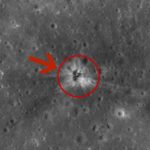Key Takeaways:
- NASA and Google Collaboration: NASA and Google jointly announced the discovery of a new solar system resembling ours, housing eight planets, including Kepler-90i, a scorching world orbiting a sun-like star.
- AI-Driven Discovery: Google’s machine-learning system, analyzing NASA’s Kepler spacecraft data, uncovered Kepler-90i and another planet, Kepler 80g, showcasing the potential of AI in astronomical research.
- Kepler-90i Characteristics: Kepler-90i, about 2,545 light-years away, is a hot, rocky planet orbiting its star every 14 days, with surface temperatures reaching around 1,800 degrees Fahrenheit (980 degrees Celsius).
- Implications for Exoplanet Exploration: This breakthrough suggests that there might be more undetected planets within the Kepler-90 solar system and potentially numerous multi-planet systems across the universe.
- Role of Astronomers and AI: While AI aids in sifting through vast datasets, astronomers remain essential in classifying objects for the AI to learn from, indicating a collaborative future between AI and human expertise in astronomical discoveries.
In a collaborative effort, NASA and Google unveiled a groundbreaking discovery: the identification of a solar system reminiscent of ours, boasting eight planets. This revelation stems from the revelation of Kepler-90i, a searing, rocky celestial body orbiting a star resembling our sun, Kepler-90, situated a staggering 2,545 light-years away from Earth.
The pinpointing of this new planet was made possible through Google’s utilization of a machine-learning system tasked with combing through the extensive dataset collected by NASA’s Kepler spacecraft. Over the years, the Kepler telescope has scrutinized approximately 145,000 stars akin to our sun, scanning for traces of distant planets.
While astronomers were aware of the Kepler-90 solar system, the detection of Kepler-90i came as a surprise. Positioned as the third planet encircling this sun-like star, it completes an orbit roughly every 14 days, sustaining surface temperatures estimated to soar to a scorching 1,800 degrees Fahrenheit (980 degrees Celsius).
Expressing his reluctance to visit Kepler-90i, Andrew Vanderburg, an astronomer from the University of Texas at Austin involved in the discovery, highlighted the inhospitable nature of this newfound planet during a press briefing. Collaborating in this exploration was Christopher Shallue, a Google AI software engineer, who emphasized the tool’s potential to augment astronomers’ impact in their research endeavors.
The duo, Vanderburg and Shallue, didn’t stop at Kepler-90i. They also uncovered another planet, designated Kepler 80g, leveraging Google’s machine-learning prowess to identify telltale signals from exoplanets embedded within the Kepler data.
This innovative approach involved the processing of a staggering 14 billion data points sourced from four years’ worth of Kepler images. The mechanism employed, a convolutional neural network, mimics the human brain’s information processing, offering a promising avenue for future exoplanet discoveries.
Foreseeing the application of this technology in unearthing more exoplanets, Vanderburg speculated that the Kepler-90 system possibly hosts additional planets yet to be detected. He pondered whether systems with an abundance of planets might exist, rendering our solar system seemingly ordinary.
Prior to this breakthrough, NASA’s analysis of Kepler data confirmed 219 new worlds among over 4,000 candidates identified by the telescope. With this recent addition, NASA’s tally of confirmed exoplanets stands at 2,525, with a subset potentially mirroring Earth’s size and habitability.
Addressing concerns about the role of astronomers in an AI-dominated era, Jessie Dotson, a Kepler project scientist at NASA’s Ames Research Center, reassured that human classification remains integral.
Astronomers’ expertise in categorizing objects precedes AI involvement, ensuring a symbiotic relationship between human insight and machine learning in astronomical pursuits.


